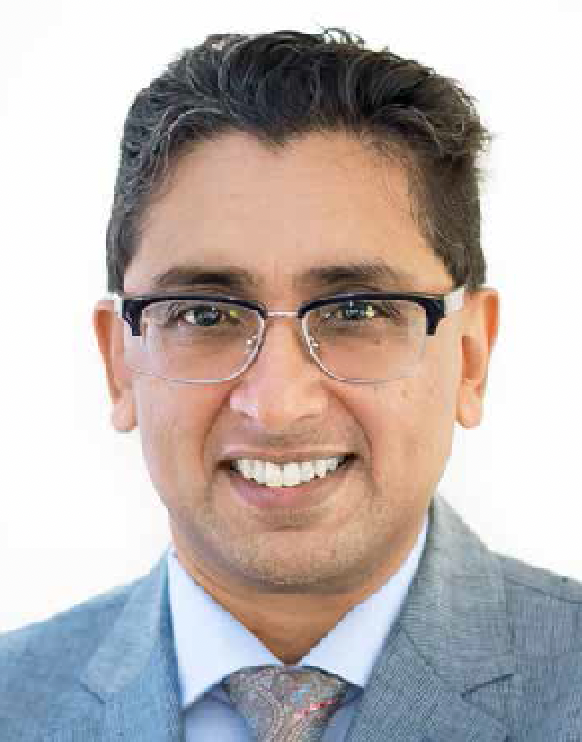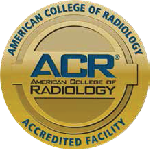
enlarged thyroid nodules?
Discover if Thyroid RFA is right for you.
Do you have a large benign thyroid nodule that is cosmetically unappealing, causing you difficulty swallowing, breathing, or resulting in pressure in your neck or voice changes?
Thyroid Radio Frequency Ablation (RFA) is a safe, non-surgical treatment of large benign thyroid nodules, including hyperfunctioning adenomas (nodules that cause overactive thyroid, hyperthyroidism, due to secretion of thyroid hormone).
Benefits of Thyroid RFA include:
- No surgery
- General anesthesia not typically required
- No cutting or scarring
- Performed in an outpatient office setting taking about 30-45 minutes


To schedule a consultation, please call
732-462-1900 ext 4790
Monday through Friday between 8:00am to 7:00pm, and Saturday from 8:00am to 12:00pm.
To request our patient services to call you at your convenience, please provide the following information:

Subspecialty Interventional Radiologist specializing in Thyroid RFA, Thyroid Biopsy, and ultrasound. Clinical Associate Professor of Radiology at Hackensack Meridian School of Medicine.

How does Thyroid RFA work?
Thyroid RFA involves placing a small needle into the target nodule and thermo-coagulating the nodule (using heat produced at the tip of the needle to shrink the nodule over time) which, over time causes scar formation within the target nodule, which causes the nodule to diminish its size substantially without ever having to remove the nodule or thyroid surgically.
What can I expect from the Thyroid RFA Consultation?
During this consultation, we will perform a precise Ultrasound to map out the exact size, location, and characteristics of your large thyroid nodule. We will review all the pertinent findings with you, answer questions and will inform you whether Thyroid RFA is a good choice for treatment of your thyroid nodule, the risks, and benefits as well as any alternative treatments. We will review treatment goals for your particular case, and what outcomes to expect, and over what timeline, including follow-up.
When is Thyroid RFA a good choice instead of surgery?
When a patient has a large thyroid benign nodule that is producing a cosmetically unappealing lump or bump in the neck, or when a patient has a benign thyroid nodule that is producing mass-effect on the surrounding neck structures, such as causing hoarseness of voice, difficulty swallowing, or difficulty breathing, these patients can benefit from Thyroid RFA and avoid surgery. Thyroid RFA will shrink the treated nodule, thereby achieving clinical success of reducing or eliminating the unwanted cosmetic lump or pressure symptoms caused by your enlarged nodule.
What are the pros and cons of Thyroid RFA versus surgery?
Thyroid RFA is an outpatient procedure, taking about 30-45 minutes to complete. There is no cutting, eliminating the need for general anesthesia; and no scar. There is no loss of function, so a patient's thyroid function tests would be expected to be unchanged between pre and post RFA. This means that patients do not need to be on thyroid supplementation medication after RFA. With surgery, there is a good chance that you will need to take thyroid hormone replacement medication for the rest of your life (usual if the entire thyroid is removed—total thyroidectomy, or likely even if only half of your thyroid is surgically removed—hemi-thyroidectomy). With Thyroid RFA, only the target nodule is treated, so the remainder of the thyroid gland is not affected, which is why usually, in the vast majority of patients, after Thyroid RFA, thyroid hormone medication is not necessary—your thyroid continues to function because it was not removed. This is one of the major benefits of Thyroid RFA over traditional surgery.
How do I know if I am a candidate for a Thyroid RFA treatment?
If you have a large benign thyroid nodule producing a lump or bump on your neck, or if the nodule is causing you discomfort when you turn your head, or causing pressure on surrounding structures, you may be a good candidate for Thyroid RFA. A 45 minute consultation will determine if Thyroid RFA is right for your particular situation.
Is Thyroid RFA covered by insurance?
Thyroid Radiofrequency Ablation (RFA) is covered under traditional Medicare. Other insurance providers are
considering adding coverage for RFA. The two biopsy procedures required before RFA are covered by insurance.
Please check with your insurance provider for specific coverage.
Visit our insurance navigator at
www.universityradiology.com/insurance

enlarged thyroid nodules?
Discover if Thyroid RFA is right for you.
Do you have a large benign thyroid nodule that is cosmetically unappealing, causing you difficulty swallowing, breathing, or resulting in pressure in your neck or voice changes?
Thyroid Radio Frequency Ablation (RFA) is a safe, non-surgical treatment of large benign thyroid nodules, including hyperfunctioning adenomas (nodules that cause overactive thyroid, hyperthyroidism, due to secretion of thyroid hormone).
Benefits of Thyroid RFA include:
- No surgery
- General anesthesia not typically required
- No cutting or scarring
- Performed in an outpatient office setting taking about 30-45 minutes
Thyroid function remains intact pre and post RFA for the majority of patients, eliminating the need for supplemental thyroid medication.
The vast majority of patients reported significantly improved appearance of thyroid nodule symptoms over time.
Thyroid RFA can be a great option for patients who need treatment for enlarged benign thyroid nodules, but want to avoid a thyroidectomy.

To schedule a consultation, please call 732-462-1900 ext 4790 Monday through Friday between 8:00am to 7:00pm, and Saturday from 8:00am to 12:00pm.
To request our patient services to call you at your convenience, please provide the following information:

Subspecialty Interventional Radiologist specializing in Thyroid RFA, Thyroid Biopsy, and ultrasound. Clinical Associate Professor of Radiology at Hackensack Meridian School of Medicine.
1043 West Main St
Freehold, NJ 07728
Phone: 732-462-1900 ext 4790
Fax: 732-462-1848

How does Thyroid RFA work?
Thyroid RFA involves placing a small needle into the target nodule and thermo-coagulating the nodule (using heat produced at the tip of the needle to shrink the nodule over time) which, over time causes scar formation within the target nodule, which causes the nodule to diminish its size substantially without ever having to remove the nodule or thyroid surgically.
What can I expect from the Thyroid RFA Consultation?
During this consultation, we will perform a precise Ultrasound to map out the exact size, location, and characteristics of your large thyroid nodule. We will review all the pertinent findings with you, answer questions and will inform you whether Thyroid RFA is a good choice for treatment of your thyroid nodule, the risks, and benefits as well as any alternative treatments. We will review treatment goals for your particular case, and what outcomes to expect, and over what timeline, including follow-up.
When is Thyroid RFA a good choice instead of surgery?
When a patient has a large thyroid benign nodule that is producing a cosmetically unappealing lump or bump in the neck, or when a patient has a benign thyroid nodule that is producing mass-effect on the surrounding neck structures, such as causing hoarseness of voice, difficulty swallowing, or difficulty breathing, these patients can benefit from Thyroid RFA and avoid surgery. Thyroid RFA will shrink the treated nodule, thereby achieving clinical success of reducing or eliminating the unwanted cosmetic lump or pressure symptoms caused by your enlarged nodule.
What are the pros and cons of Thyroid RFA versus surgery?
Thyroid RFA is an outpatient procedure, taking about 30-45 minutes to complete. There is no cutting, eliminating the need for general anesthesia; and no scar. There is no loss of function, so a patient's thyroid function tests would be expected to be unchanged between pre and post RFA. This means that patients do not need to be on thyroid supplementation medication after RFA. With surgery, there is a good chance that you will need to take thyroid hormone replacement medication for the rest of your life (usual if the entire thyroid is removed—total thyroidectomy, or likely even if only half of your thyroid is surgically removed—hemi-thyroidectomy). With Thyroid RFA, only the target nodule is treated, so the remainder of the thyroid gland is not affected, which is why usually, in the vast majority of patients, after Thyroid RFA, thyroid hormone medication is not necessary—your thyroid continues to function because it was not removed. This is one of the major benefits of Thyroid RFA over traditional surgery.
How do I know if I am a candidate for a Thyroid RFA treatment?
If you have a large benign thyroid nodule producing a lump or bump on your neck, or if the nodule is causing you discomfort when you turn your head, or causing pressure on surrounding structures, you may be a good candidate for Thyroid RFA. A 45 minute consultation will determine if Thyroid RFA is right for your particular situation.
